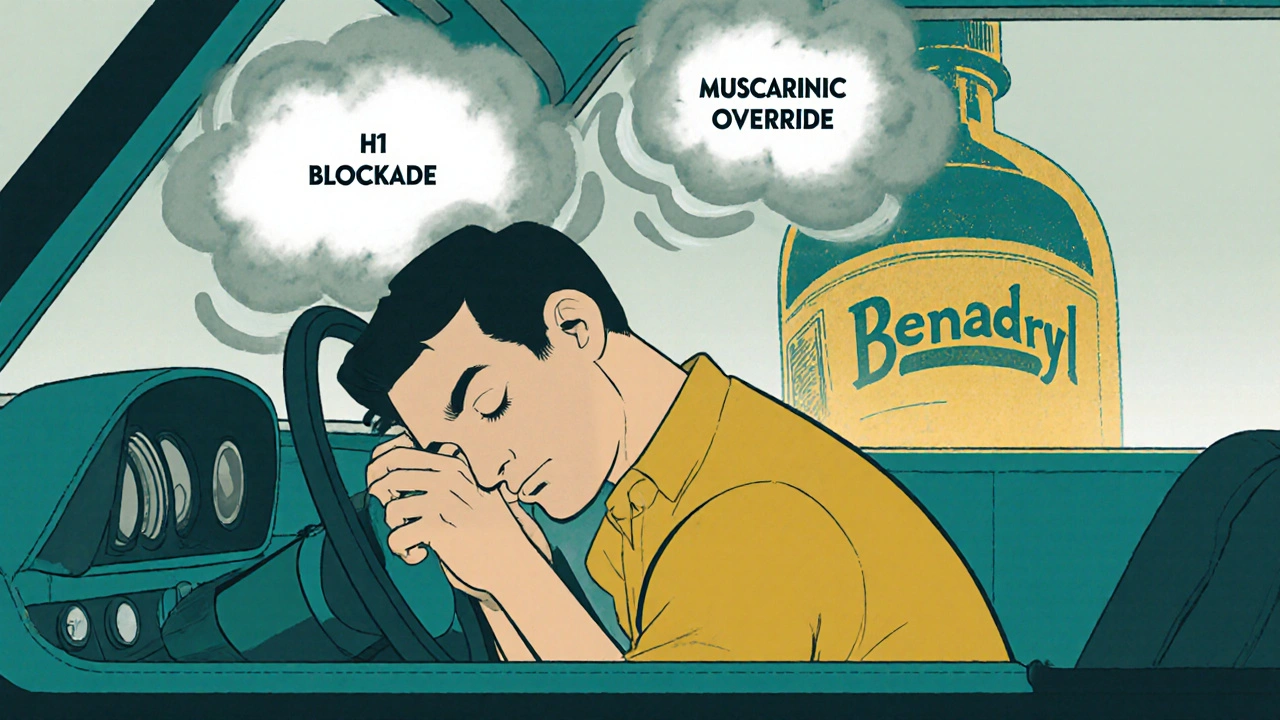Anticholinergic Effects: What They Are, How They Impact You, and What Medications Cause Them
When you take a medication that blocks acetylcholine, you’re experiencing anticholinergic effects, a group of side effects caused by drugs that inhibit the neurotransmitter acetylcholine, which controls muscle movement, heart rate, digestion, and memory. Also known as cholinergic blockade, this isn’t a disease—it’s a reaction, often unintended, from common prescriptions and even over-the-counter pills. You might not realize it’s happening until your mouth feels like cotton, your vision goes fuzzy, or you forget why you walked into a room.
These effects show up because acetylcholine is everywhere in your body. When drugs like anticholinergic drugs, medications that reduce the activity of acetylcholine, commonly used for allergies, depression, overactive bladder, and Parkinson’s step in, they silence signals that keep your glands, muscles, and brain running smoothly. That’s why you get dry mouth from allergy pills, constipation from antidepressants, or trouble focusing from sleep aids. Even some stomach meds and motion sickness patches do this. The problem? These side effects pile up over time, especially in older adults, and can mimic dementia or make falls more likely.
It’s not just about discomfort. Long-term use of strong anticholinergic drugs has been linked to higher risk of cognitive decline. If you’re on multiple meds—say, one for blood pressure, another for sleep, and a third for allergies—you might be stacking up anticholinergic hits without knowing it. That’s why checking your pill bottle labels matters. Look for terms like anticholinergic, antimuscarinic, or ingredients like diphenhydramine, oxybutynin, or amitriptyline. These aren’t rare—they’re in dozens of everyday drugs.
Some people need these drugs. Someone with overactive bladder might not walk without them. But knowing the trade-offs lets you talk smarter with your doctor. Maybe there’s a safer alternative. Maybe you can lower the dose. Maybe you don’t need it at all. The posts below break down real medications that carry these effects—from sleep aids to antidepressants to bladder pills—and show you exactly what to watch for, what to ask, and how to spot hidden risks in your medicine cabinet.

First-Generation Antihistamines: Why Severe Drowsiness and Anticholinergic Effects Matter
- Oct, 27 2025
- Daniel Remedios
- 5 Comments
First-generation antihistamines like Benadryl cause severe drowsiness and long-lasting cognitive impairment. They're still widely used, but their anticholinergic effects raise dementia risk - especially in older adults. Safer alternatives exist.
